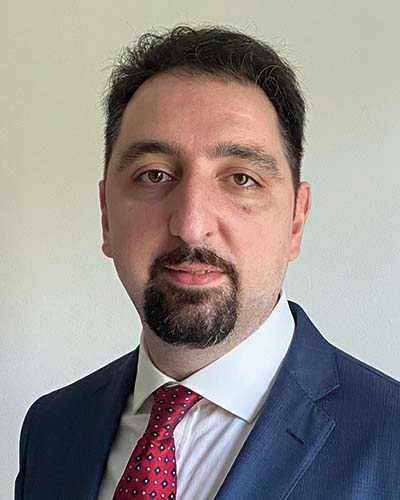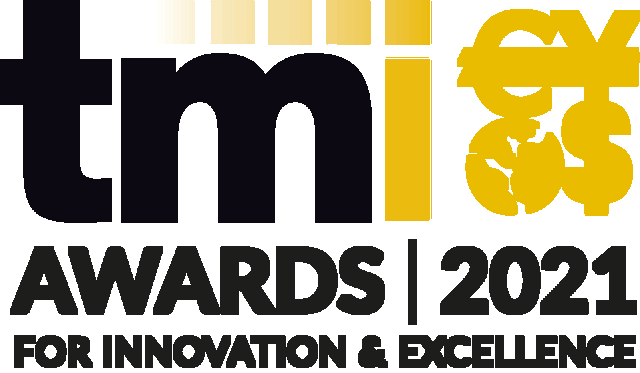

- Zurab Abutidze
- Regional Treasury Director Asia Pacific & Middle East, Danone
Danone Scoops Treasury Team of the Year 2021
Over the past 18 months Danone, a leading global food and beverage company, has initiated an ambitious, regional, multi-phased project with a view to transforming its treasury operations and how it further enhances corporate objectives. With business norms changing rapidly over the last couple of years, progress with this broad-scoped project has enabled treasury to become a valuable business partner. In recognition of its hard work, creativity and true teamwork, the TMI judges were unanimous in awarding Danone the accolade of 2021 Treasury Team of the Year.

Corporate Recognition Awards
Treasury Team of the Year
Danone
Sometimes a business function needs to think big to achieve results. When it comes to transformations, Danone’s small but inspired treasury team has left no stone unturned, combining three pillars, but each encompassing multiple smaller initiatives, to achieve its goals.
Three pillars of success:
1. Centralisation
The intent was to identify and run the most crucial projects regionally to extract maximum organisational efficiency
2. Digitisation
With the target to revamp and enhance operating modules at multiple organisational levels, state-of-the-art solutions were deployed to further business objectives and ensure interoperability
3. Standardisation
The aim was simple: steer all teams towards a common process, reducing fragmentation and operational risks
These pillars were complemented by strategic initiatives focusing on select areas of Danone’s growth and business continuity planning in its key markets. Treasury worked with teams from the wider business, technology, and core operations, creating a series of smaller projects to achieve the objectives for each pillar.
Planning to succeed
Centralisation
As Danone had grown rapidly over the past few years with new market operations launched, the treasury team took the opportunity to conduct a deep dive into all key processes, identifying which would benefit from centralisation.
One of the first was automation of FX deal execution. Based on internal policies and audit requirements, a solution was designed to seamlessly integrate the newly implemented Kyriba TMS with Bloomberg and Citi’s FX Pulse platforms, providing end-to-end automation, pricing visibility and transparency, and trading in restricted markets. This helped improve FX rates, with savings of up to $150,000 per annum. Trading time of around 50 hours is saved per year, with circa 210 hours per year saved through automated confirmations.
A bank access management sub-project was aimed at improving security of Danone’s banking connectivity, via HSBCnet and CitiDirect platforms, using a single centralised banking access process. This was based on standardisation of key documentation and saw the team reduce regional e-banking portals from 21 to just two.
The aim of the liquidity management strand was to optimise use of surplus liquidity across all markets. To this end, offshore cash pooling and lending was established in China. This ensured that treasury up-streamed more than €300m of previously trapped cash, which was then injected into the company’s daily cash cycle to fund further growth. This figure represents 19% of Group Danone’s 2020 bond issuance programme, illustrating how critical this was in reducing external debt issuance, leverage ratios for the group and overall interest expense management.
In Oceania, a cross-border zero balance account (ZBA) mechanism was established to decrease interest expenses in Australia and New Zealand. This swept cash directly to accounts held in the Netherlands, enabling upstreaming of around €180m, in turn reducing interest annual expenses of around $200,000. The same scheme is underway for Hong Kong and the United Arab Emirates.
Additional projects covered by this pillar include automation of bank deposits and MMF reporting in the TMS to increase placement efficiency on average by 30-40%, with an additional monthly income of $225,000-$280,000. Also, by setting up green deposits in India, Danone is funding a portfolio of sustainable assets and practices (with an increased placement rate of circa 4bps). The team also revamped its banking strategy to focus on two core banks and reducing the number of bank accounts by 70, this being achieved through cash collection/payment tools.
Digitisation
Leveraging technology was central to the overarching project’s success. It was by and large aimed at delivering improved visibility and better cash conversion cycles. Treasury started with a thorough process review, in partnership with all stakeholders, to identify projects with maximum business impact across all levels, especially those enhancing fundamental areas such as payments and collections.
The most significant project in this strand was the implementation of the Kyriba TMS. This saw a phased and highly collaborative implementation across 17 markets, timely management of multiple legacy systems, and alignment of priorities across markets and teams. The results include end-to-end visibility, transparency, and improved security, with process automation a decrease of operational workload of teams across the region of up to 15%.
Additional technologies have been implemented by treasury, including Citi Payment Outlier Detection (monitoring and detecting fraud), SWIFT gpi and KYC Registry. A cards programme has also been set up for B2B procurement and T&E spend, and virtual accounts are being used through a core bank to enhance cash management. The digitalisation of cash collections in Indonesia is aided by a fintech partner. These projects have all served to enhance Danone’s regional AP/AR experience, saving hundreds of operational hours, and contributing to a stronger credit control processes and lower credit risk levels.
Standardisation
A key element of the standardisation pillar is the Danone regional shared service centre (SSC). This is aimed at rationalising and standardising payment processing across the region, maintaining service quality at a high level and driving increased efficiency and compliance. This project was also rolled out in phases, one country at a time, with the project team including treasury, accounting, IT, and financial control.
The SSC enables the centralisation of operational treasury tasks (such as payment execution, bank reconciliation, bank statement management, and reporting) for Thailand, Brunei, the UAE, Australia and New Zealand and Malaysia. Another five countries in the Asia Pacific and Middle East (ASPAME) region are underway.
Responsibility
As a supplementary project, Danone extended its supply chain financing (SCF) programme to Indonesia, ensuring that critical suppliers are able to optimise their own working capital. This has created an annual free cash flow benefit of €1.9m which, during the pandemic, has proven vital to supply chain continuity while underscoring Danone’s sense of corporate responsibility. Treasury aims to replicate the structure in the regional procurement hub in Singapore, with local programmes similarly set for Turkey and the UAE.
No fear
Danone’s treasury team, in a transformational 12 months, has now fully aligned with senior management’s vision for the organisation. This has laid the right foundation for it to support business growth for the years ahead. Not only has the three-member Danone Asia team been highly ambitious, but through careful planning and long-term thinking, it has also delivered on most of its key projects, the benefits now being felt across the organisation and in some cases beyond.
It was clearly focused on the strategic vision of building a ‘Treasury of Future’ while acknowledging it also has to deliver on the front line. Treasury has demonstrated innovative thinking, its small team embracing a startup mindset from the outset, with quick wins and no fear of failure.
Danone has benchmarked its treasury policy with current requirements, and future expected needs of business and external best practices. This ensures the transformed set-up is ready to support any change in any market. Its strategy of deploying technology has proven correct, improving visibility and automation. Furthermore, it has engaged in effective stakeholder management, covering a complex set of parties across geographies, functions and roles, emerging as a well-respected partner by all.
It would be fair to say that the work of the past year or so by this energetic team has exceeded expectations for savings and value-add for the organisation. For this, TMI has absolutely no hesitation in awarding Danone the accolade of 2021 Treasury Team of the Year.
About the TMI Awards
For over 30 years, Treasury Management International (TMI) has been dedicated to promoting best practices and innovations in treasury management. The TMI Awards for Innovation & Excellence play a key role in this, formally recognising the corporate practitioners, banks, vendors and consultants who are defining new frontiers globally.



